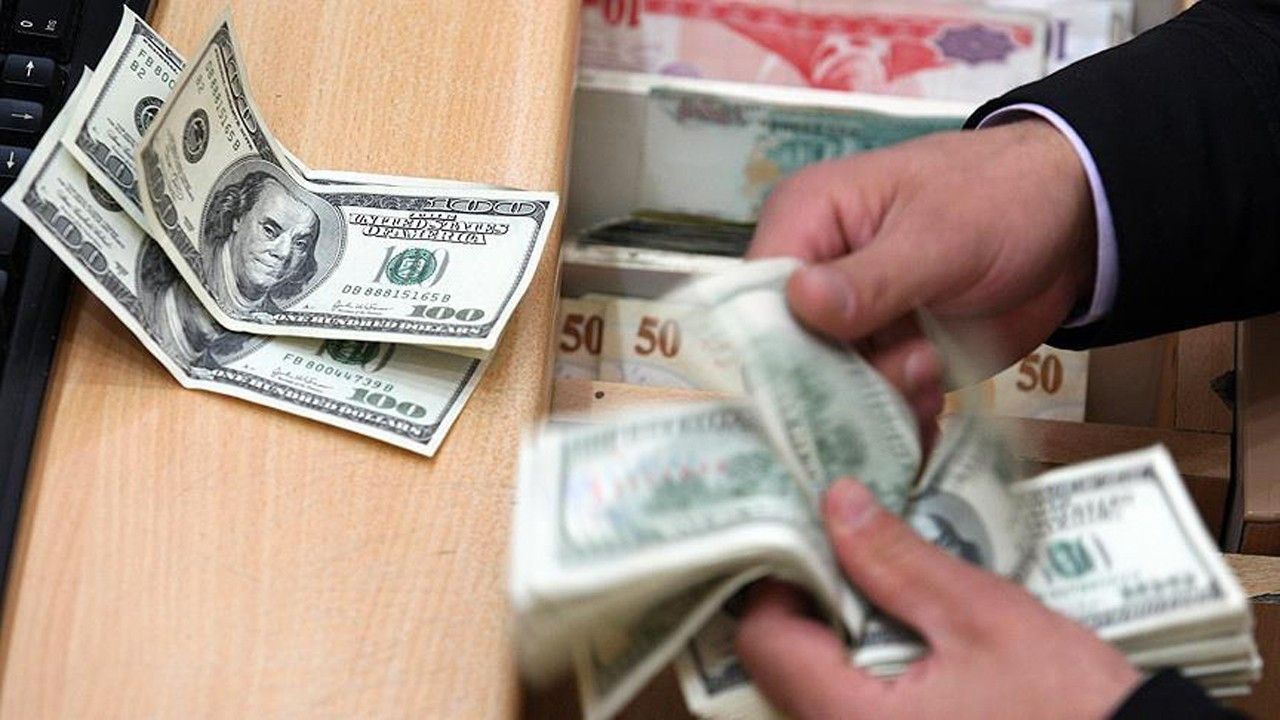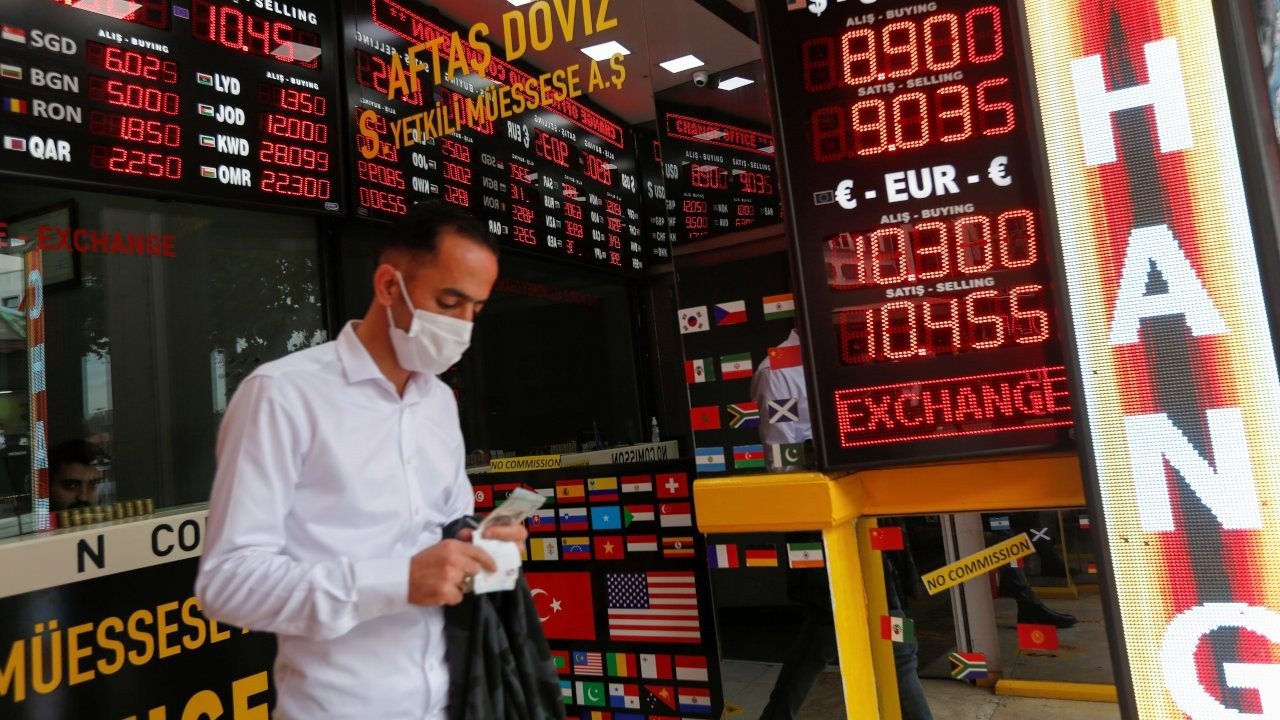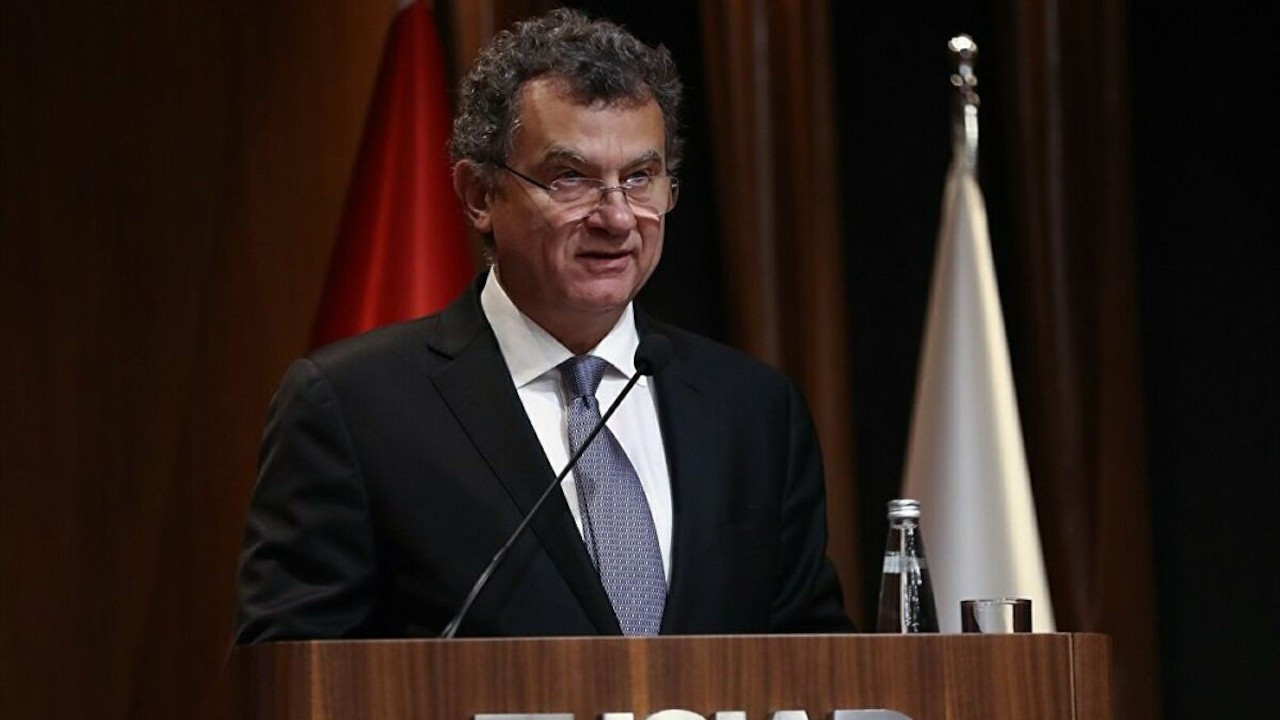Turkish lira sinks to record low after central bank rate cut
Turkey's lira weakened to a record low, beyond 9.47 against the U.S. dollar, after the central bank cut rates by a bigger than expected 200 basis points.
Duvar English
Turkey's lira weakened to a record low after the central bank cut rates by a bigger than expected 200 basis points.
The lira dropped as much as 2.9% to a record low of 9.4782 to the dollar, and was the worst performer in Europe, the Middle East and Africa (EMEA) after the central bank cut rates to 16% from 18%, Reuters reported.
The bank suggested there would be little more room to ease policy through the year end, pointing towards higher inflation in the country and more pressure on the lira, which is already the worst performing emerging market (EM) currency this year.
The central bank cut rates to 18% last month, despite inflation reaching nearly 20% in Turkey. The cut was seen as an extension of President Recep Tayyip Erdoğan's opposition to high rates, which has seen him replace three central bank governors in the past two years.
Data from the Institute of International Finance showed that foreign investors have been consistently pulling out of Turkey since the rate cut last month.
Turkish stocks dipped 0.2%, as data showed consumer confidence in October touched its lowest level since February 2009.
The “recent increase in inflation has been driven by supply side factors,” the central bank said, calling them transitory, Bloomberg reported.
“The Committee assessed that, until the end of the year, supply side transitory factors leave limited room for the downward adjustment to the policy rate.”
A self-described “enemy” of high interest rates, Erdoğan espouses the unconventional hypothesis that reducing them will lead to lower inflation. He has increasingly meddled in monetary policy in recent years as he has consolidated his control over the Turkish state.
Erdoğan appointed Şahap Kavcıoğlu as governor in March, replacing hawkish predecessor Naci Ağbal after back-to-back rate hikes. Kavcıoğlu kept policy unchanged for nearly six months before unexpectedly cutting the benchmark rate by 100 basis points to 18% in September, when consumer inflation accelerated to 19.6%.
Last week’s monetary policy committee reshuffle pushed the currency to new lows, extending its losses this year against the dollar to over 20%, more than any other major currency tracked by Bloomberg.
Kavcıoğlu will update the bank’s base-case scenario for inflation through the rest of 2021 and the following two years on Oct. 28, and answer questions from economists and reporters. The central bank currently sees consumer-price growth finishing the year at 14.1%, a more optimistic forecast than the government’s latest estimate of 16.2%.
The statistics agency will publish October inflation data on Nov. 3.

 Turkey’s lira sinks to new low on rate-cut concernsEconomy
Turkey’s lira sinks to new low on rate-cut concernsEconomy Turkey 'faces threat of grey-listing by global finance watchdog'Economy
Turkey 'faces threat of grey-listing by global finance watchdog'Economy Turkey’s top business group calls for secularism, independent Central BankEconomy
Turkey’s top business group calls for secularism, independent Central BankEconomy